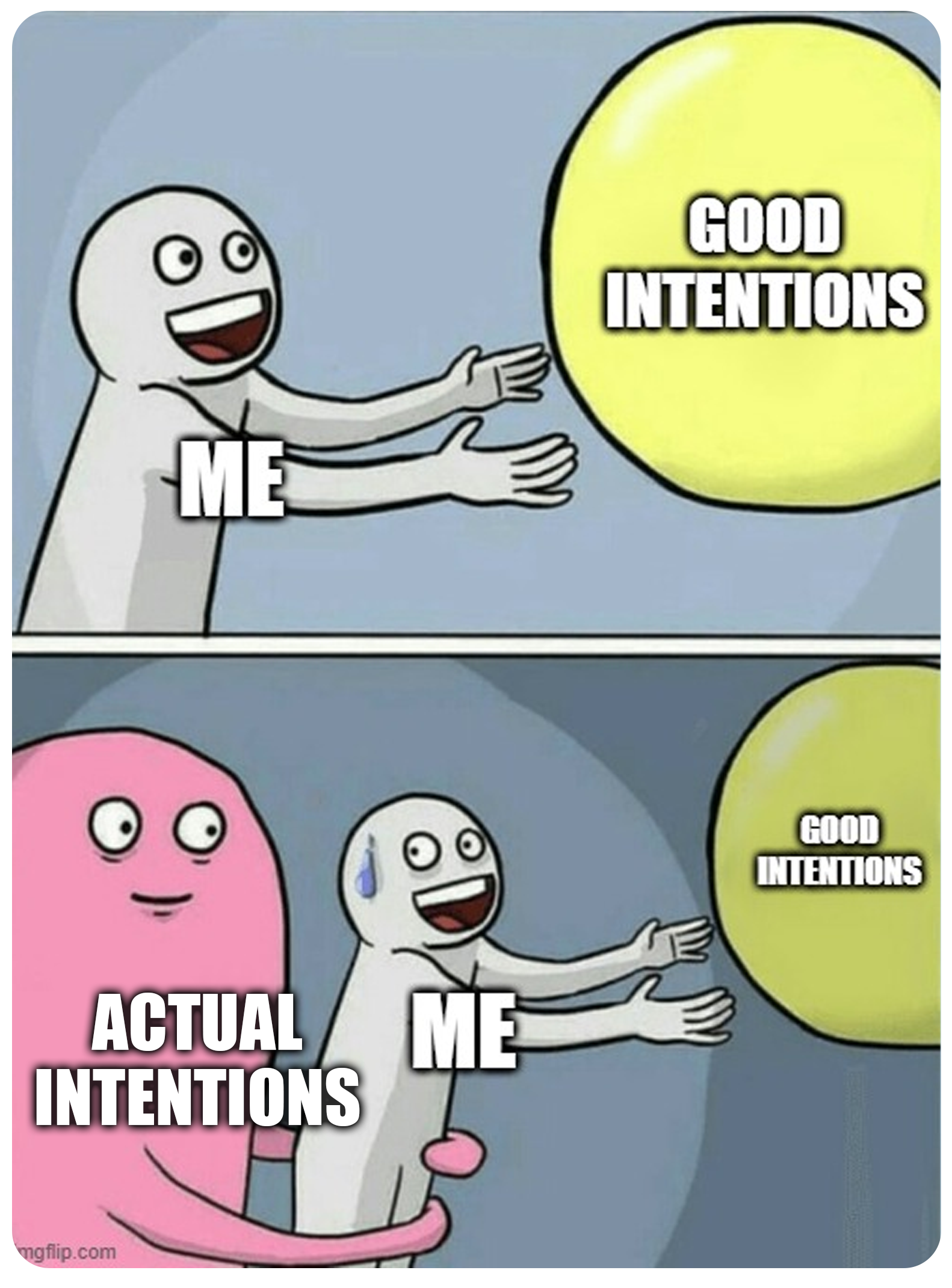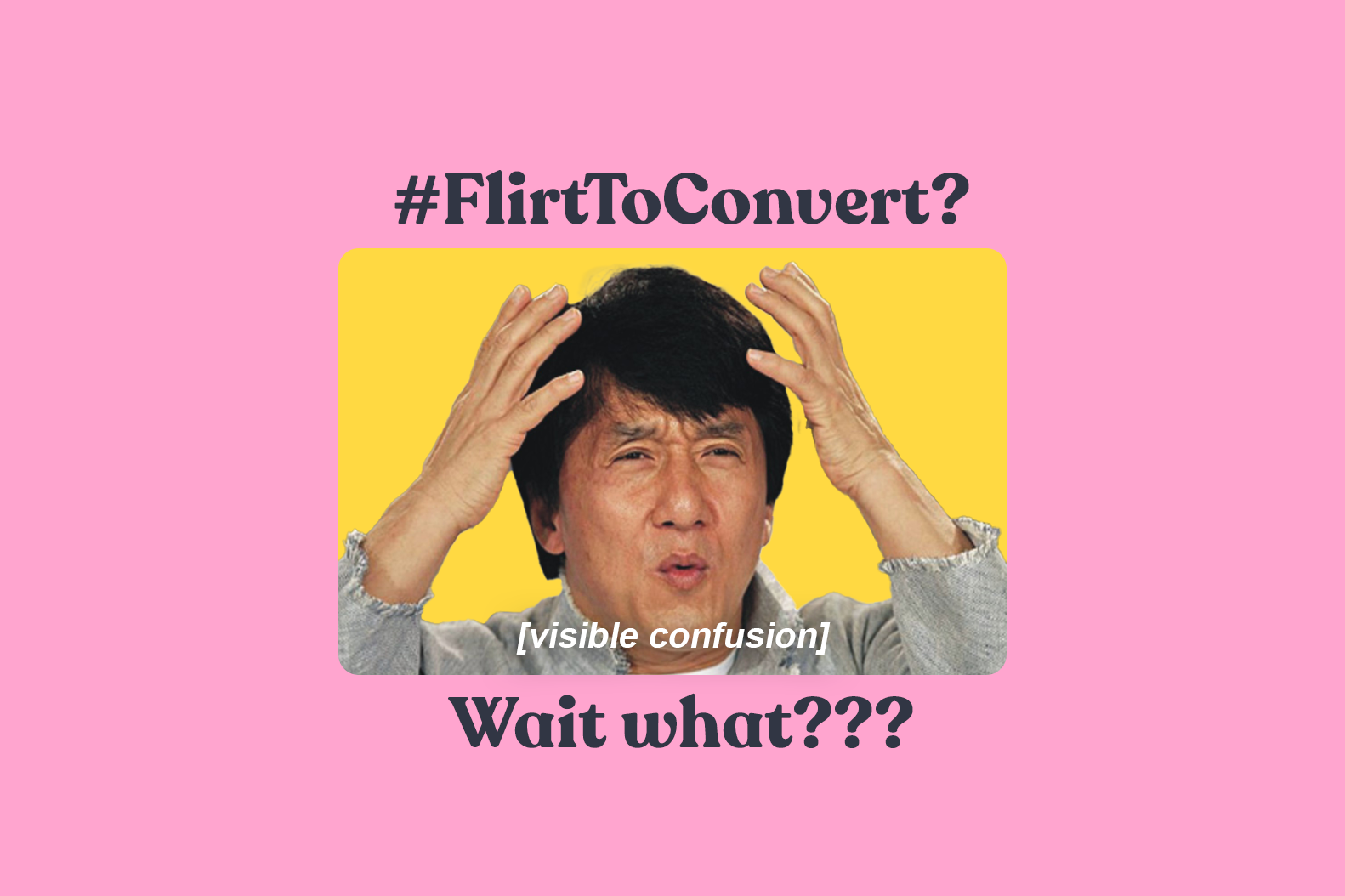“Flirt to convert” is a phrase regularly tossed about in Gen Z conversations as a joke.
For instance, given that the dating pool for believers is significantly smaller compared to others, my friends and I used to joke about flirting to convert guys in our school to expand the list of options, possibly increasing our chances of getting attached.
The action itself, however, is nothing to laugh about as it has detrimental effects on both ourselves and those outside the church.

Let’s break down this elusive phrase a little further. Flirt to convert has two branches:
- When a person is attracted to you, and you use this attraction to introduce them to Christianity.
- When you enter into/are exploring a relationship with a non-believer, hoping that they will open themselves to the faith and eventually convert.
Next, let’s explore the dangers of both branches.
Branch 1: Exploiting attraction
It’s a wonderful thing to introduce someone to Christ. But when we use inauthentic means to persuade someone to open themselves up to God – that is problematic.
If a Christian blurs boundaries and exploits the attention he or she receives from others with the intention to “convert” them, we cheapen and reduce our faith into something like a brand when it should instead be grounded upon a deliberate attempt to know and follow God.
The focus is wrong, as exploring Christianity would become a means to pursue someone romantically.
There’s also the danger of viewing people as projects or even problems to solve, which is very far removed from how God loves His people.
Efforts intended to bring the person closer to God may have mixed intentions as well, since personal motives come into play.
The result? A relationship that is blurred, grey and conditional — not at all what God wants in a relationship with His children.
Manipulating someone’s feelings to introduce them to Christ is not winsome witness. It may well breed resentment down the line and cause our friend to harbour feelings of betrayal towards the church.

Branch 2: Expecting acceptance
Here’s a scenario for you. Imagine finding a person who checks all your boxes:
- Family person
- Does the dishes
- Cooks better than your mum
- Reciprocates your interest (best part!)
Alas, they’re not Christian — what a waste! And so we think, “Maybe can ‘explore’ first, convert later…”
There are quite a few issues with getting into an unequally-yoked relationship and hoping for your partner to convert.
The first issue is that there’s just no way around 2 Corinthians 6:14: “Do not be yoked together with unbelievers. For what do righteousness and wickedness have in common? Or what fellowship can light have with darkness?”
When you are unequally yoked with someone, your worldview, values and beliefs are misaligned. That is a poor foundation for any relationship, let alone a lifelong marriage union that seeks to honour God and do His will.
“Explore first, convert later” is literally putting first things last, and not choosing one’s spouse wisely.
Certainly, there are also couples who began their relationship while unequally yoked before one of them accepted Christ.
However, that does not mean we should emulate their examples. It is good to remember that their conversions were a matter of God’s grace.
So while we celebrate God’s grace for them, we must also acknowledge that His grace is a gift that we must not take for granted nor consider guaranteed for a potential unbelieving partner.
“Explore first, convert later” is literally putting first things last…
There are yet more dangers, like one party associating the other with God.
Since A’s initial jumpstart into the faith was a relationship with B, A’s view of God may be irrevocably linked to B. This places pressure on B since their mistakes may affect their partner’s perception of God.
The couple also risks hurt and disappointment when B expects A to fulfill their “potential” (that B saw in A when they decided to “explore first”) for conversion or spiritual growth when B might not even be willing or ready to consider it at all.
What you see is what you get. When it comes to making a big decision about a life partner, it’s better to be realistic, fair to one another and walk into it with your eyes wide open.
Stories from my two friends
“A new command I give you: Love one another. As I have loved you, so you must love one another. By this everyone will know that you are my disciples, if you love one another.” (John 13: 34-35)
God calls us to love others as He loves us. His love is unconditional and pure. By flirting to convert we directly go against this love that God calls us to give to others.
Of course, there are “success stories”. However, it’s important to understand that these stories are in spite of the relationship, rather than because of it.

Ben, a first-gen Christian who was introduced to the faith by his then-crush, shared about how he initially stepped into the church with the intention of getting closer to her.
However, he ended up staying for the church community where he found belonging and experienced Christ’s love through them. He eventually accepted Christ a few months after.
Ben’s motivations shifted from an outward desire for a romantic relationship to an inward conviction to chase after God and build a genuine relationship with Him.
It was only God’s grace and divine intervention that turned this into a “success story”.
When asked about the topic of flirting to convert, Rachel, a leader in my church, shared that discerning our intentions is a good way to know if our actions honour God.
By bringing this person to church, do we genuinely want to share the love of Christ, or is it so that we can take a step closer to a possible relationship?
Rachel then brought up 2 Corinthians 6:14-18: “Do not be yoked together with unbelievers. For what do righteousness and wickedness have in common? Or what fellowship can light have with darkness?”
Some Christians are taken aback by the bluntness of the verse. However, Rachel stressed the importance of understanding the heart behind God’s word.
It’s easy to interpret it as God wanting to restrict our freedom.
However, His law protects both believers and non-believers. Beyond the reasons already mentioned earlier, being unequally yoked would mean friction between both parties, making room for hurt, distrust and disappointment.
Rachel added that hoping one’s partner will “convert” adds an additional layer of stress on the relationship which is not ideal, especially since there are already other battles even within a relationship that is equally yoked.
Trust me, I’ve tried it before…
It’s tempting to try and justify a relationship “for God”, especially if the person is showing signs of being open to Christ.
Personally, I found myself caught at the crossroads of pursuing a relationship with a non-believer during my secondary school years.
My friends continued to joke about “flirting to convert” him and throwing caution to the wind since “God would not fault” me for trying to bring someone to church.
I came to God with my frustrations and desperation for the relationship to work out.
I felt like God was asking me if I truly wanted to see this guy accept Christ or if his salvation was just a side goal in my main quest to start a relationship.
In my desperation for a relationship I negated the fact that my partner counts as someone God chases after as well, and I was in no position to step in as an incentive for him to know God.
It was then I realised my intentions weren’t as pure-hearted as I perceived them to be.
I found peace knowing that I didn’t compromise on someone’s relationship with God for the sake of my own desires.
Thankfully, with the help of the leaders in my church, I broke things off amicably.
I still had to wrestle with God while dealing with my feelings of loneliness and disappointment. However, I found peace knowing that I didn’t compromise on someone’s relationship with God for the sake of my own desires.
So, the core danger of flirting to convert lies in the way God is consequently presented to others.
Let’s not reduce God to a hoop to jump through in order that we might gain a romantic partner.
I believe that God is worth infinitely more than that!
- Flirt to convert. Ever heard this phrase in conversations? How do you feel about it?
- What is one thing that stood out to you in this article?
- What might God be saying to you today?









